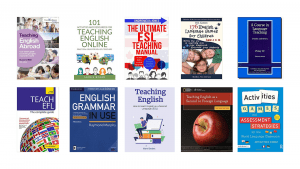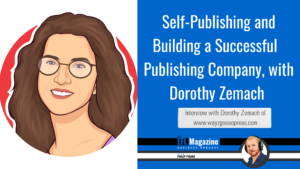Every teacher dreams of compiling their best teaching ideas into a solid book at some point in their career, I suspect. It might be to use as a textbook for a given class that you teach repeatedly or more of a personal reflection on your evolution as a teacher with case studies, top lesson ideas or just personal anecdotes that you believe might help others avoid or anticipate some of the challenges of teaching and foresee how to avoid them. Whatever your ideal book is about, I would like to share some of my positive and negative experiences with both traditional publishers and self-publishing over the past few decades.
An Editor can make or break your book
You trust your editor, right? Well, maybe you should and maybe you should not. I worked on two separate projects where the editor either made the final product far worse than it should have been or done a project with far too many writers with very different visions for their material come together and produce a pretty solid book. Perhaps asking for feedback on a sample chapter and seeing whether you agree or disagree with them and their vision is a good idea before you start working on a book project which may take a year or more and require countless hours of writing, rewriting, and multiple drafts to satisfy everyone involved.
Payment upfront or Royalties
Almost every project I worked on involving a traditional publisher and printed textbooks included a small cash payment upfront and the promise of royalties of roughly 5% if the books sold well. Unfortunately, according to the publishers, none of the books did well, and so no royalties were ever paid. Therefore, my experience would lead me to get paid something upfront for my work rather than accepting a more significant percentage of possible future royalties – even if they promised 10% of the sales (the highest percentage any publisher offered me).
The all-important Extras for teachers
In all cases, the quality of the students’ books produced by every publisher I have ever dealt with has been very good to excellent. Sadly, the same is not true of the other materials designed to accompany them. Some books did not even have a teacher’s guide. Others had a cheaply produced (and easily damaged) pamphlet. The worst example was a four skills book with an audio cassette that was supposed to have a diverse, multicultural cast of voice actors. Instead, the publisher hired two North Americans to do dialogues with Japanese or British English accents, for example. The results were as cringe-worthy as you might expect, so do not let the publisher control the production of these parts of your textbook project, or you will probably be disappointed.
What is in a cover?
This is more of an issue for self-publishing, perhaps, but make sure that your cover is colorful, professional-looking, and clearly linked to your book’s topic and theme. For example, the most expensive part of using the self-publishing company I use is the cover art. Since these are EBooks, the consumer is judging the book based on the front cover primarily, rather than the spine of the book among a line of similar books on a bookshelf, but with online sales steadily growing without necessarily overtaking printed book sales, the cover of every book is the first thing most potential buyers will see, so it had better be attention-getting(1).
Marketing….what marketing?
One of my first book projects failed at the end because the publisher wanted us to market our books to our network of friends, use them in our own classes, make presentations and travel around the country doing the work of the marketing department. All for little or no money and with little support from them. Those of us who did all the work of writing the book chapters were the experts on what the book was all about, so why work with a large, well-known publisher if you are being forced to market as if you self-published anyway? This leads to my next piece of advice.
Are the contract details clear EVERYONE?
I live in Korea, but I am an English Professor, and my Korean is far from fluent. Therefore, I usually work with other authors, and, in many cases, my co-authors are Korean, so they handle much of the interactions and negotiations with the publisher, editors, etc. You might assume that they would be treated better than I would be on my own, but this has not been the case. My last Korean co-writer is a well-known authority on Business English and was formerly a negotiator for Korean Airlines. Even with his experience and efforts, our textbook project was canceled at the 11th hour – after the final proofing and layout were all done, and the cover for the textbook was virtually complete.
The publisher broke their contract in this case and even demanded the return of the small cash payment we received a year into the project. After a month or so of attempts to salvage something, we both walked away in frustration (and kept their money). My suggestion here is to verify the scope of the deal as often and as clearly as is possible without actually pestering anyone. This is to make sure everyone understands and is living up to the contract and the scope of the book project per se.
Why are you writing THIS book?
As alluded to above, there are many reasons to write a book. After six attempts with traditional publishers, I moved to self-publishing EBooks (look me up on Amazon, Kobo, or Barnes and Noble to see for yourself). I am pretty sure at this point that I will not have a bestseller anytime soon, but as I add new books for teachers, students, or others, I do expect to make a steady stream of income from them over time.
Without a doubt, I have made more money from the failed books projects mentioned above than the self-published books to date, but on average, they took a lot less work on my part since I was using materials I had already developed for courses or workshops. While they may not be as visually appealing as the printed books done by a big commercial publisher, I know that the content is all tailored to the needs of my students and myself (and other educators as well with interest in those specific areas). The end of this journey remains to be seen, especially since the future of EBooks and print books is still not clear(2), but I certainly have learned a lot from it.
References:
(1) https://medium.com/s/story/amazon-vs-the-book-industry-the-war-that-never-was-191816492747
(2) https://www.idealog.com/blog/changing-book-business-seems-flowing-downhill-amazon/







